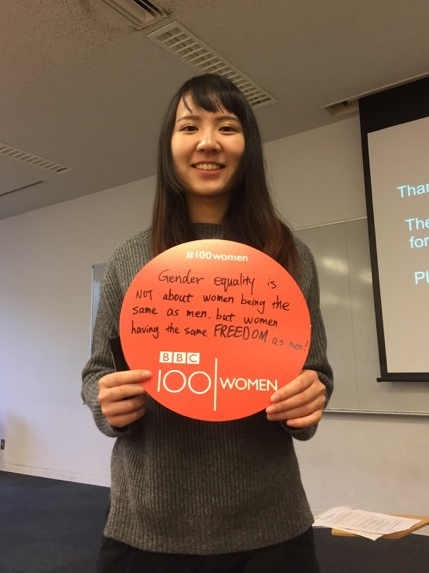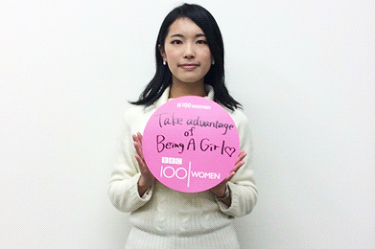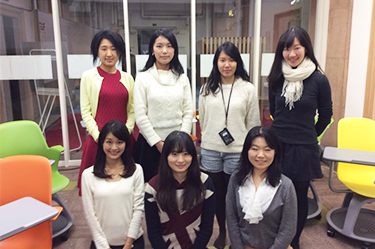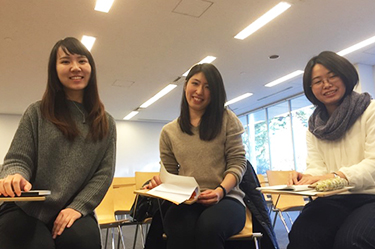BBC 100 Women: UTokyo Students Join Global Debate on Social Expectations of Women

Date of activity: December 1, 2015
Ten undergraduate and graduate students from the Hongo and Komaba campuses took part in the British Broadcasting Corporation's 100 Women online debate, joining a global conversation about the pressures and expectations faced by women. Students from Japan, China, and the Philippines watched three short videos on the themes of women and leadership, image and appearance, and relationships and gender roles. After each video they discussed their experiences in their own countries and the expectations that society places on them. The event was jointly organized by the University of Tokyo's Office for Gender Equality and Public Relations Office.

Yun makes an insightful point: “Gender equality is not about women being the same as men, but women having the same FREEDOM as men!”
Discussing leadership at Hongo, the group also argued that women should be free to choose how they want to live their lives. If that is as a housewife raising children, there should be no criticism of that choice – just as women should be equally free to choose a career if they want. The students thought that in society women are generally expected to be subservient in interpersonal relationships, meaning that women in leadership positions face tough choices. They might adapt by adopting a subservient demeanor only in front of those who cannot accept women in leadership positions, but some members thought that this would prevent real change towards equality for women. The group suggested that rather than being challenged by successful women, relationships would last if men were confident in themselves, an idea that might also be applied in the workplace. Instead of those participating in the debate today, they suggested, it is those who do not have the self-awareness to participate in this type of event that most need to be discussing these issues.
At the end of the debate, each group thought about what single pressure on women they would eliminate to make women's lives easier. The Komaba group focused on basic principles, arguing that if we could get rid of socially defined gender roles both women and men would have the freedom to be themselves without the constraints of social expectation. The Hongo group argued that tolerance of diversity is essential to create a world where both women and men are free from the constraints of stereotypes, so getting rid of intolerance would have the greatest impact on making women's lives easier by ameliorating society's expectations regarding their social role.
This was the first online debate organized by the BBC for 100 Women, a series that has continued since 2013. Some of the themes discussed around the world mirrored those from participants in Japan, but also showed the unique experiences of women in each location. At the end of the debate the students had made new friends, connecting on Facebook. We hope that everyone will continue the debate throughout the campus! Related URL

Sayo thinks that women should take advantage of being women 
The Hongo group at the University Central Library 
The Komaba group in the Communication Plaza classroom






